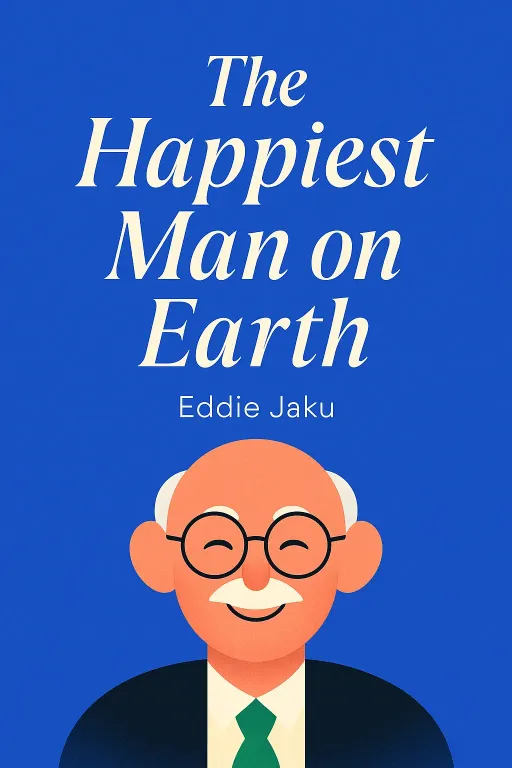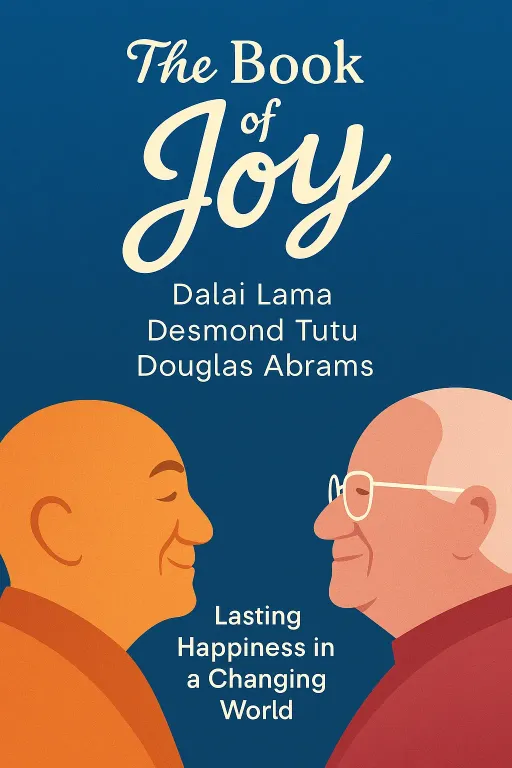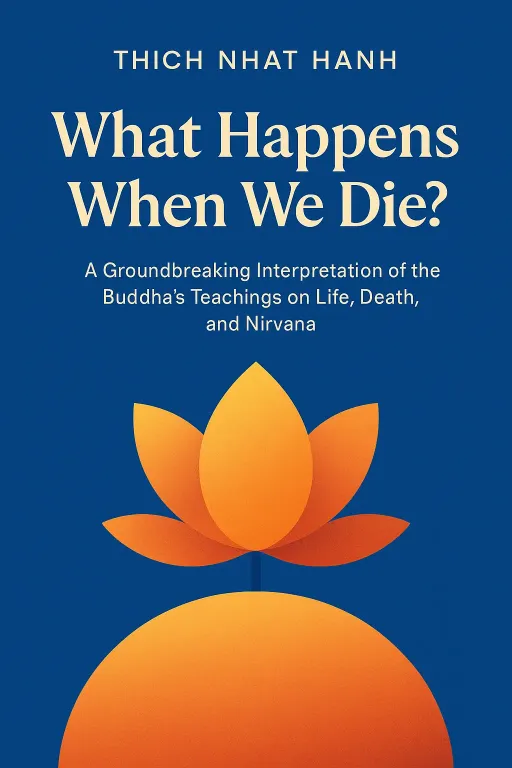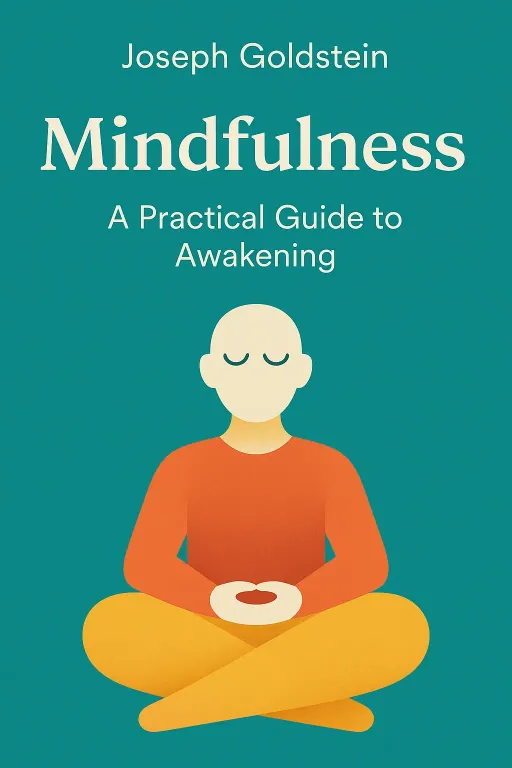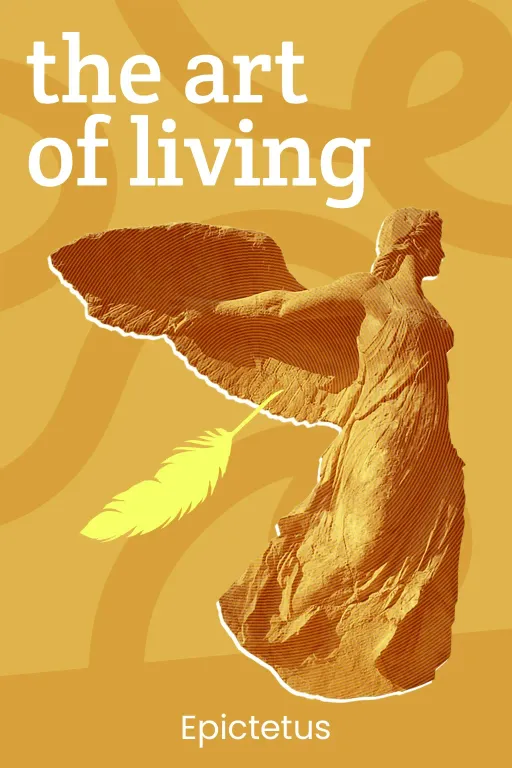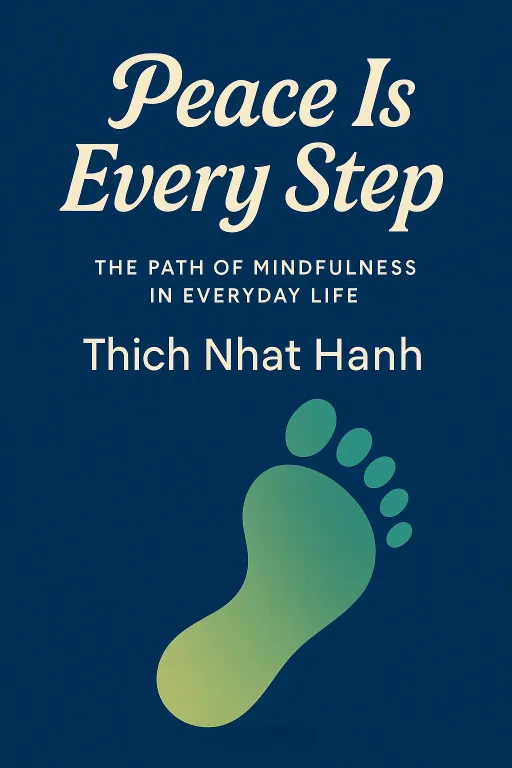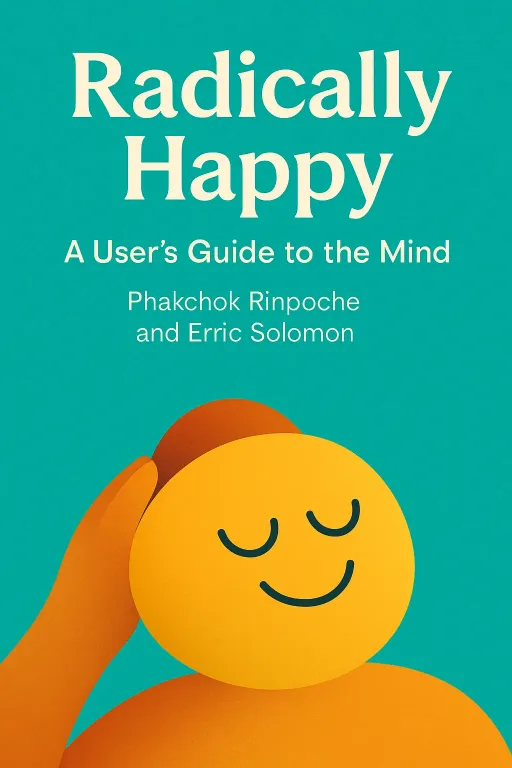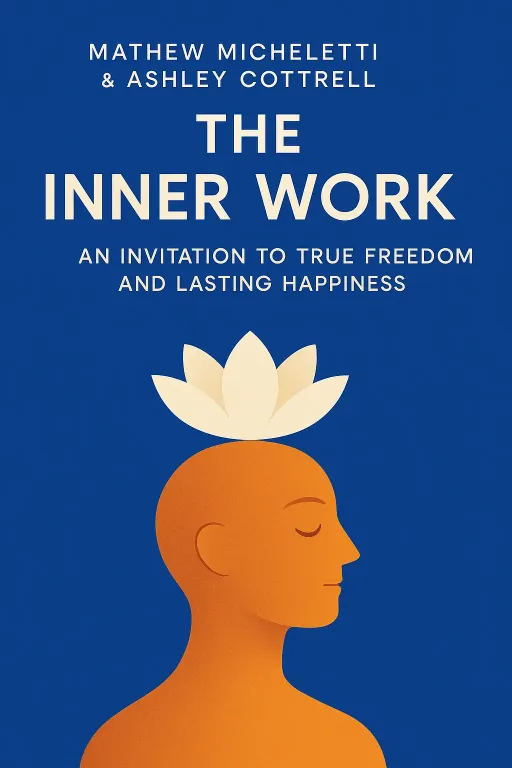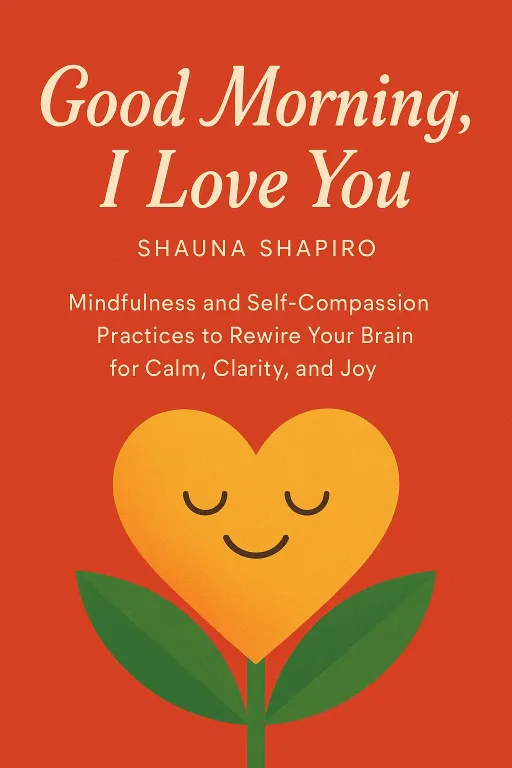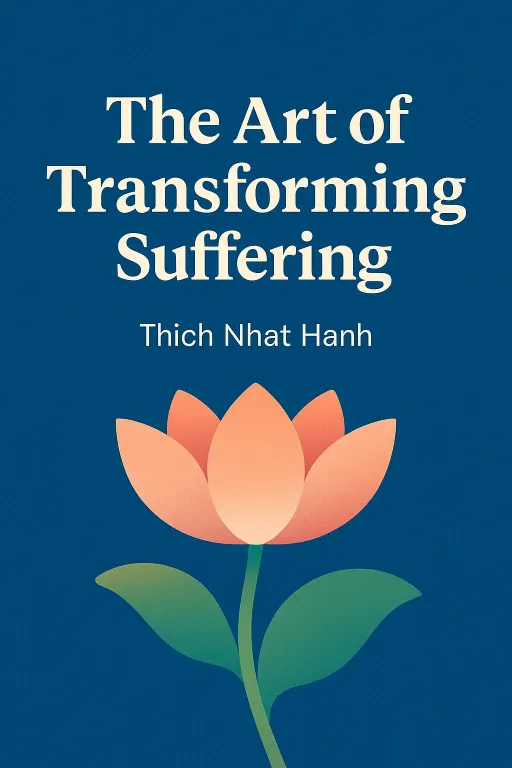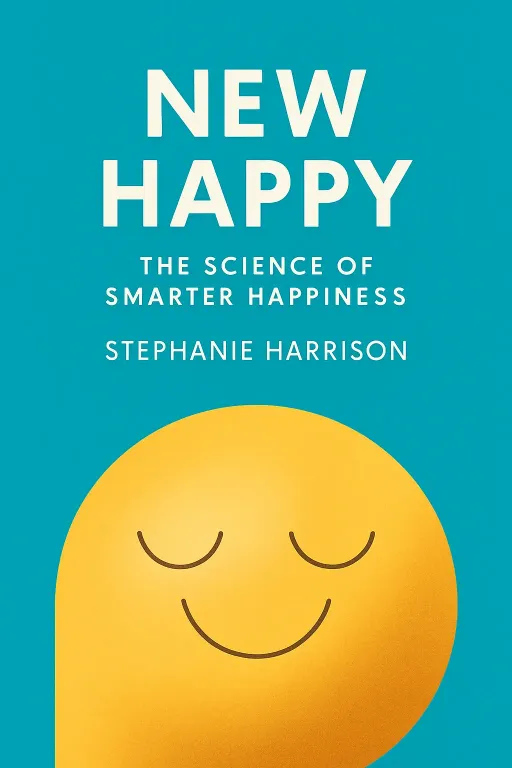
New Happy
14 minThe Science of Smarter Happiness
Introduction
Narrator: Imagine achieving everything society tells you should make you happy—the prestigious job, the success, the recognition—only to find yourself in a New York City apartment, plagued by panic attacks and a profound sense of hopelessness. This was the reality for Stephanie Harrison, who, despite checking all the boxes of a successful life, felt desperately unhappy. This disconnect, this painful gap between external achievement and internal fulfillment, sparked a moment of curiosity that would change her life. It led her on a journey to dismantle the myths we've been sold about contentment and to discover a more authentic, sustainable path to joy. In her book, New Happy: The Science of Smarter Happiness, Harrison reveals the science-backed framework that emerged from her quest, offering a guide to redefine happiness on our own terms.
The Happiness Myth: Why Chasing Success Leaves Us Empty
Key Insight 1
Narrator: The foundational problem, Harrison argues, is that society has sold us a flawed definition of happiness, which she calls "Old Happy." This is the belief that happiness is an outcome to be achieved through external validation—wealth, power, perfection, and relentless competition. We are taught that if we just get the promotion, buy the house, or achieve the perfect body, then we will finally be happy. But this is a lie.
This pursuit of extrinsic goals often leads to a hollow victory. Consider the story of tennis champion Andre Agassi. Groomed for greatness by his father from infancy, Agassi achieved everything a person could want in his sport: eight Grand Slam titles and a number one world ranking. Yet, in his autobiography, he makes a stunning confession: "I play tennis for a living even though I hate tennis, hate it with a dark and secret passion and always have." When he finally reached the top spot, he felt nothing. His entire life had been dedicated to a goal that wasn't his own, a perfect example of the "Old Happy" trap. The book presents overwhelming evidence that this path, focused on what we can get, is fundamentally broken and is a direct cause of the rising rates of loneliness, anxiety, and depression.
Unmasking the Three Lies of "Old Happy"
Key Insight 2
Narrator: The "Old Happy" worldview is built on a foundation of three pervasive and damaging lies that keep us trapped in a cycle of dissatisfaction.
The first lie is "You're not enough." This is the insidious belief that we are inherently flawed and must constantly prove our worth through performance. It drives perfectionism and a relentless inner critic. Celebrities like Demi Moore have spoken about being at the peak of their fame, the highest-paid actress in Hollywood, yet feeling they were never good enough. This lie disconnects our self-worth from our humanity and ties it to our achievements, an unwinnable game.
The second lie is "You'll be happy when..." This lie tells us that happiness is a destination, always waiting just around the corner after the next achievement. It puts life on hold, convincing us to endure misery in the present for a promised future reward. Harrison shares stories of friends who burned out chasing promotions or spent years in careers they hated, always believing happiness was one more step away, only to find the finish line brought no relief. This is because these goals are extrinsic—focused on image and financial success—rather than intrinsic goals like personal growth, connection, and community, which are the true sources of lasting joy.
The third lie is "You're on your own." "Old Happy" promotes a hyper-individualistic, competitive mindset that severs us from one another. It tells us we must succeed by ourselves and for ourselves. This directly contradicts our deepest biological and psychological needs. The longest-running study on happiness from Harvard University found that the single greatest predictor of a long, healthy, and happy life is the quality of our relationships. By telling us we are separate, "Old Happy" isolates us, making us more vulnerable to loneliness, which research shows is more deadly than smoking.
The True Foundation of Happiness: A Fundamental Need to Help
Key Insight 3
Narrator: Harrison argues that the popular understanding of Maslow's Hierarchy of Needs, often depicted as a rigid pyramid, has been misinterpreted in a way that reinforces "Old Happy" thinking. It suggests we must satisfy all our own needs before we can think about others. However, Maslow himself later emphasized self-transcendence—the pursuit of a cause beyond the self—as a core human drive.
The "New Happy" philosophy places this at its center: we have a fundamental, biological need to help others. This isn't just a nice thing to do; it's essential for our own well-being. When we help, our brains release a cocktail of rewarding neurochemicals, a phenomenon known as the "helper's high." Studies show that people who volunteer and contribute to their communities have lower stress, better health, and live longer.
This innate drive is most powerfully seen in moments of crisis. After the 9/11 attacks in New York City, when official systems were overwhelmed, tens of thousands of ordinary citizens ran toward the danger to help. They formed bucket brigades, donated blood, and comforted grieving families. One volunteer described it as an "absolute need," a feeling that eliminated the sense of separation and connected them to a larger community. This reveals a fundamental truth: we are wired to help, and in doing so, we find our own happiness.
The Helping Paradox: Why Asking for Help is a Gift
Key Insight 4
Narrator: If we are wired to help, a paradox emerges: why is it so incredibly difficult to ask for help? The same "Old Happy" lies that tell us we're not enough and must be self-reliant create a deep-seated shame around vulnerability. We see needing help as a sign of weakness or failure.
Even the most accomplished people struggle with this. Michael Phelps, the most decorated Olympian of all time, confessed that for years, he saw only a swimmer in the mirror, not a human being. He believed he had to be perfect and couldn't show any weakness, a mindset that prevented him from seeking help for his mental health struggles.
Harrison introduces "the helping paradox" to reframe this. The paradox is: when you ask for help, you are helping. You are giving another person the opportunity to activate their own fundamental need to contribute and experience the joy and fulfillment that comes from it. Asking for help is not a burden; it is an act of connection that benefits both the giver and the receiver. It requires us to practice self-compassion, recognize that pain is a shared human experience, and understand that our struggles do not diminish our worth.
Uncovering Your Three Unique Gifts: Humanity, Talent, and Wisdom
Key Insight 5
Narrator: The path to a "New Happy" life involves discovering and using our unique gifts to serve the world. Harrison identifies three types of gifts that every person possesses.
First is Humanity, which is the expression of our inner goodness through acts of love, kindness, and compassion. It’s about slowing down enough to see the person in front of you and taking the next loving action, like the Spanish runner Iván Fernández Anaya, who guided a competing Kenyan runner to the finish line after he mistakenly stopped early, sacrificing his own victory.
Second is Talent, which is the potential that is sparked by curiosity and developed through practice. This isn't about being a prodigy; it's about finding what you love and creating an environment to nurture it. Julia Child discovered her potential for cooking after a single, soul-opening meal in France at nearly 40 years old, a spark that she nurtured into a world-changing talent.
Third is Wisdom, which is the unique insight gained from our personal experiences—our journey, accomplishments, and especially our difficulties. A librarian named Barbara Weedman, drawing on her difficult experiences as a single mother, used her wisdom to design special library workstations with attached play areas for babies, a simple idea that went viral and helped countless parents.
These three gifts combine to make each person's potential contribution to the world entirely unique.
Crafting a Life of Service: Putting Your Gifts into Action
Key Insight 6
Narrator: The final step is to serve the world by putting these gifts into action in every area of life: at work, in our communities, and on a global scale. This means redefining success away from the "Old Happy" model of winning and competition.
At work, this can mean "job-crafting." Dr. Thanh Neville, a pulmonologist in a high-stress ICU, transformed her job by starting the "3 Wishes Project," which honors the end-of-life wishes of dying patients. This small act of humanity brought profound purpose and joy to her and her team, turning a place of sorrow into a source of deep fulfillment.
In our communities, it means claiming ownership and using our gifts to solve local problems. In Iceland, Haraldur Thorleifsson, who uses a wheelchair, was tired of being excluded by inaccessible buildings. He started "Ramp Up Iceland," a project to build 1,000 ramps, fundamentally changing the culture of his city and allowing others to participate fully in community life. Serving the world isn't about waiting for a hero; it's about recognizing that we are the ones we've been waiting for, and that our time to act is now.
Conclusion
Narrator: The single most important takeaway from New Happy is the radical redefinition of happiness itself. It is not a selfish pursuit or a destination to be reached, but a way of being in the world—a way grounded in connection, contribution, and service. The book dismantles the myth that we must secure our own happiness first before we can help others. Instead, it reveals that the very act of using our unique gifts to contribute to the well-being of others is the most direct and sustainable path to our own.
The book leaves us with a challenge drawn from Leo Tolstoy's timeless parable, "The Three Questions." A king learns that the most important time is now, the most necessary person is the one you are with, and the most important thing to do is to do good for them. So, where do you start? You start right here, with the person in front of you. What gift can you offer them, right now?
